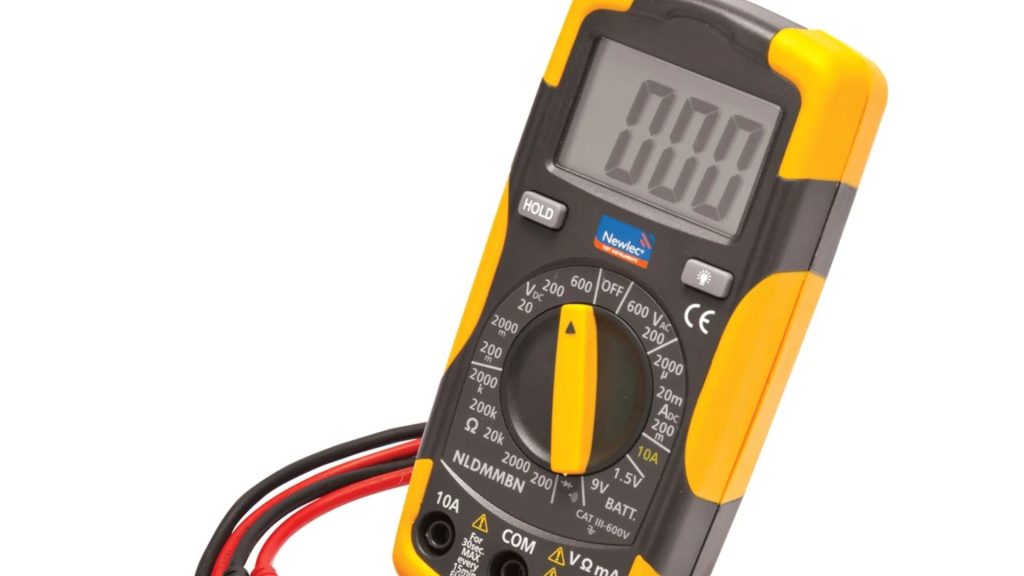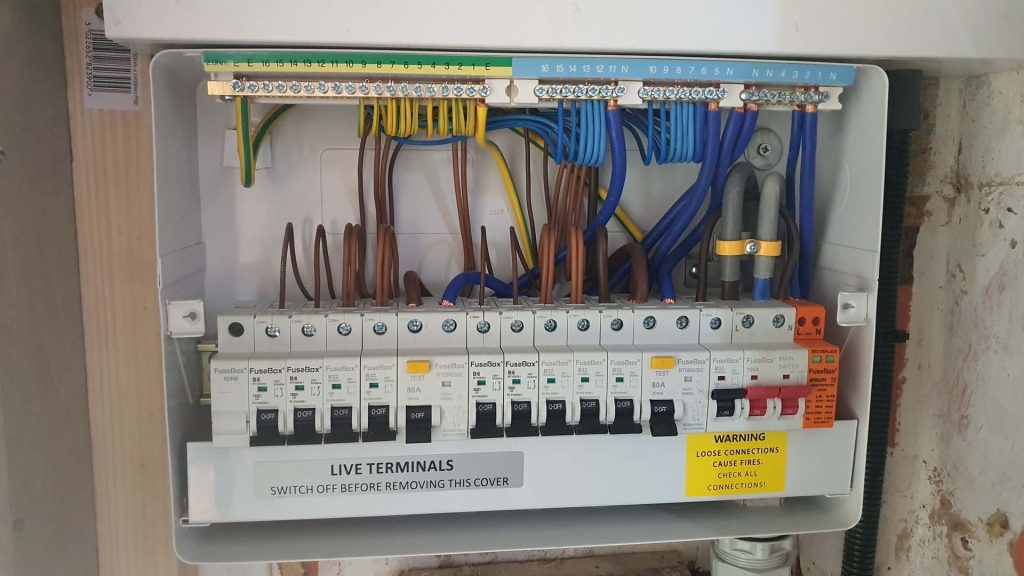Keeping rental properties electrically safe isn’t just good practice – it’s the law. Recent changes to legislation have made electrical safety standards more stringent for landlords across the UK. This guide breaks down everything you need to know about your electrical safety obligations, helping you protect both your tenants and your property investment.
What Are the Current Electrical Safety Requirements for UK Landlords?
The landscape of rental property electrical safety has changed significantly in recent years. Since June 2020, the Electrical Safety Standards in the Private Rented Sector (England) Regulations have required landlords to ensure their rental properties meet specific electrical safety standards.
These regulations mandate that:
- All electrical installations must be inspected and tested by a qualified electrician at least every five years
- Landlords must provide a copy of the Electrical Installation Condition Report (EICR) to tenants within 28 days of inspection
- New tenants must receive a copy before they occupy the property
- Local authorities can request a copy, which must be provided within 7 days
- Any remedial work required must be completed within 28 days (or less if specified)
Similar requirements exist across Scotland, Wales, and Northern Ireland, though with some regional variations in implementation dates and specific requirements.
The regulations aim to reduce the estimated 4,000 accidents that occur annually in UK homes due to electrical faults. Failing to comply with these regulations can result in penalties of up to £30,000, making compliance not just a safety issue but a financial imperative.
How Do Electrical Installation Condition Reports (EICRs) Work?
An EICR is a comprehensive health check for your property’s electrical systems. During this inspection, a qualified electrician examines your property’s fixed electrical installations, including:
- Consumer units (fuse boxes)
- Wiring systems
- Earthing and bonding
- Socket outlets and switches
- Light fittings and built-in appliances
The inspection results in a detailed report classifying any issues found using specific codes:
C1 (Danger Present): Immediate risk requiring urgent attention. The electrician may take immediate action to make the installation safe.
C2 (Potentially Dangerous): Risk of injury exists; urgent remedial work required.
FI (Further Investigation): Potential danger identified requiring additional investigation without delay.
C3 (Improvement Recommended): Not dangerous but improvements suggested to enhance safety.
For your EICR to be deemed “satisfactory,” it must be free of C1, C2, and FI codes. Having only C3 recommendations still results in a satisfactory report, though addressing these issues is good practice.
Reports remain valid for five years unless the electrician specifies a shorter period due to the condition of the installation. Contrary to some misconceptions, a change of tenancy does not invalidate an existing EICR.
Who Is Qualified to Perform Electrical Safety Inspections?
Finding the right electrician for your safety inspection is crucial. The regulations specify that inspections must be carried out by a “qualified and competent person.” This typically means:
- An electrician registered with a government-approved scheme such as NICEIC, ELECSA, or NAPIT
- Someone holding appropriate qualifications for electrical inspection and testing
- A professional with adequate insurance and experience with the current Wiring Regulations (BS 7671)
When hiring an electrician, request evidence of their qualifications and registration with a recognised scheme. At Relec LTD, our fully qualified electricians meet all regulatory requirements and provide comprehensive inspection and testing services that comply with current legislation.
What Happens if Remedial Work Is Required?
If your EICR identifies issues requiring remedial work, you have specific legal obligations:
- Complete all necessary repairs within 28 days (or sooner if specified in the report)
- Obtain written confirmation from a qualified electrician that the work has been completed
- Provide this confirmation to your tenants within 28 days
- Submit the documentation to your local authority within 28 days if requested
Failing to address safety issues promptly can result in local authorities taking enforcement action. They may arrange for the work to be done and recover costs from you, or impose significant financial penalties.
For many landlords, managing remedial work presents challenges in finding qualified professionals quickly. Having a relationship with a reliable electrical contractor like our team at Relec simplifies this process, ensuring timely compliance with minimal disruption to tenants.
What About Portable Appliances in Rental Properties?
While the Electrical Safety Regulations focus primarily on fixed installations, landlords should also consider the safety of any electrical appliances they provide.
Though not explicitly covered by the same regulations, the Landlord and Tenant Act 1985 and the Consumer Protection Act 1987 create an implicit duty to ensure appliance safety.
Best practices include:
- Regular visual inspections of appliances
- Portable Appliance Testing (PAT) for landlord-supplied appliances
- Keeping records of tests and inspections
- Registering appliances with manufacturers for safety recall notifications
- Providing instruction manuals for all supplied appliances
While tenants bear responsibility for their own appliances, providing guidance on electrical safety can help prevent incidents and protect your property.
How Can Landlords Prepare for Electrical Inspections?
Preparing your property for an electrical inspection helps ensure a smooth process:
- Gather documentation: Collect previous electrical certificates, records of work done, and appliance manuals.
- Ensure access: Make sure the electrician can access all electrical installations including consumer units, light fittings, and socket outlets.
- Address visible issues: Fix obvious problems like damaged socket fronts or loose wiring before the inspection.
- Inform tenants: Give adequate notice and explain the importance of the inspection.
- Schedule strategically: Plan inspections between tenancies when possible to minimise disruption.
Proactive preparation not only facilitates the inspection process but may also reduce the likelihood of remedial work being required.
What Additional Electrical Safety Measures Should Landlords Consider?
Beyond the minimum legal requirements, responsible landlords often implement additional safety measures:
Regular visual checks: Between formal inspections, conduct visual checks for damage to electrical installations or signs of overheating.
RCD protection: Ensure all circuits, especially those in high-risk areas like kitchens and bathrooms, have Residual Current Device protection. Our consumer unit upgrades service can help modernise outdated installations.
Smoke and heat detectors: Install and maintain appropriate detection systems, particularly in properties with older electrical installations.
Tenant education: Provide guidance on electrical safety, including what to do in an emergency and how to report concerns.
Record keeping: Maintain comprehensive records of all electrical work, inspections, and communications with tenants about electrical safety.
These measures not only enhance safety but can also protect your investment by preventing electrical damage to your property.
How Has COVID-19 Affected Electrical Safety Compliance?
The pandemic created unique challenges for landlords trying to meet their electrical safety obligations. While the legal requirements remained unchanged, practical difficulties around access and availability of qualified electricians created complications.
Current guidance emphasises that:
- Safety inspections should continue where possible
- Appropriate precautions should be taken to protect tenants and electricians
- Documentation of attempts to arrange inspections is essential if delays occur
- Communication with tenants about safety concerns is crucial
If you’ve experienced delays due to pandemic-related issues, it’s important to resume regular inspection schedules as soon as practicable and document all steps taken toward compliance.
How Can Relec Help Landlords Meet Electrical Safety Requirements?
Managing electrical safety compliance needn’t be overwhelming. Our team of electricians in Wigan specialises in helping landlords meet their legal obligations efficiently and thoroughly.
We provide:
- Comprehensive electrical installation inspections and EICR certification
- Prompt remedial work when issues are identified
- Clear documentation and certification for your records
- Emergency electrical services when urgent issues arise
- Ongoing support and advice on maintaining electrical safety
With extensive experience working with landlords across the North West, we understand the unique challenges of rental property maintenance and provide tailored solutions that prioritise both compliance and tenant safety.
For landlords managing multiple properties, we can develop scheduled inspection programmes ensuring all properties remain compliant without administrative headaches.
What Should Landlords Do Next?
If you’re a landlord in the North West, review your current electrical safety documentation to determine if your properties are due for inspection. For many properties, the five-year inspection cycle introduced in 2020 will soon require renewal.
Don’t wait for issues to arise – proactive management of electrical safety protects your tenants, your property, and your investment. Our qualified electricians can help you develop a comprehensive electrical safety strategy tailored to your property portfolio.
Contact our team on 07380 392 496 to arrange an inspection or discuss your electrical safety needs.
Remember that electrical safety isn’t just about compliance – it’s about providing safe, quality housing for your tenants while protecting your valuable property assets.


